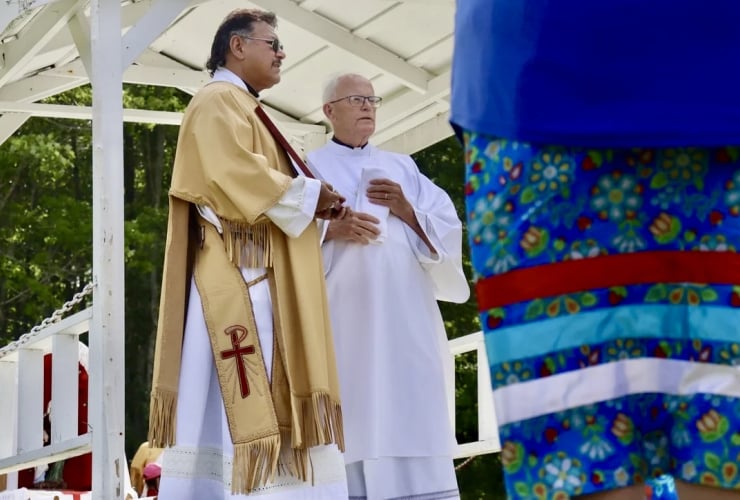Forty people who were living in a street encampment on Vancouver's Downtown Eastside that is being cleared by city workers have accepted offers of accommodation, BC Housing says.
The provincial Crown agency's vice-president of operations, Dale McCann, spoke at a press conference Wednesday at city hall, where Mayor Kennedy Stewart reported “good progress” clearing the street in accordance with a safety order by the city’s fire chief.
Stewart said the clearance operation that began on Aug. 9 was an “extremely challenging situation” that had only become more complex.
"Our job is to balance the fire safety risk with the need of providing housing and compassionate care for some of our city's most vulnerable residents," he said.
"I want those folks to know that we're doing everything we can and are working non-stop to restore your sense of belonging and dignity. We have made good progress on this issue (by) moving people indoors, reducing fire risk, and clearing garbage and refuse from Hastings Street."
City manager Paul Mochrie said workers have been removing about two tonnes of material per day from the encampment on East Hastings Street.
He said it was difficult to say precisely how many tents and structures had been removed, but seven out of 10 zones deemed the highest risk had been cleared. Mochrie said there had been steady and consistent progress in the clearance operation.
Stewart said there was no way to clear the street in a hurry, and the core principle of the operation was one of compassion.
“They are real people who need our help,” said Stewart of the encampment’s residents. “It’s a very painful process for people that are already experiencing trauma and this is only adding to their burden of life.”
Mochrie said the situation in the Hastings encampment was part of a “fundamental systemic challenge” extending beyond the Downtown Eastside, but in July the camp grew substantially.
He reported “increasing resistance” to city workers that resulted in sidewalks becoming essentially impassable, blocked by large volumes of unsanitary and combustible materials. Mochrie added that violence had also been on the rise, posing an “immediate and serious risk” both to people on the street and others living and working nearby.
Vancouver fire Chief Karen Fry told the press conference her July order to clear the street was triggered by a “severe risk of loss of life," which included blocked exits, inaccessible fire department connections, and propane and gasoline being stored in tents.
There had been an average of 4.4 fires per day in the area, she said, citing a blaze on Monday on the Downtown Eastside that displaced dozens of people. That fire started outside the building and was linked to improperly stored combustible material, she added.
“It’s not a matter of if a fire is going to happen, it’s when it is going to happen,” Fry said.
She said workers had been training camp residents how to use fire extinguishers.
McCann said BC Housing's most recent count found that about 2,000 people are currently without homes in Vancouver, though he noted the number changes daily. He said the agency is working to add 700 new "supportive housing options."
"Ultimately, we will only be able to address homelessness by also addressing the factors that lead people to become homeless, including poverty, the need for affordable rental housing and the need for robust health services," he said.
McCann said that BC Housing is also aware that improvements need to be made to some single-room occupancy hotels to ensure they are up to fire and safety codes. This includes ensuring there are working fire alarms and that people have access to safe drinking water as well as fans or other cooling systems.
"We are working with the city (and) with the federal government on long-term plans to either renovate or redevelop a number of SROs within the Downtown Eastside, but that is costly. It's time consuming, and it will emerge over many years to come," he said.
"We are doing what we can in a situation that we fully recognize is less than ideal."
This report by The Canadian Press was first published Aug. 24, 2022.




Comments